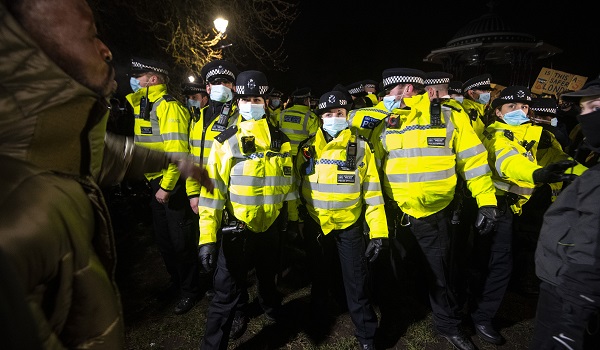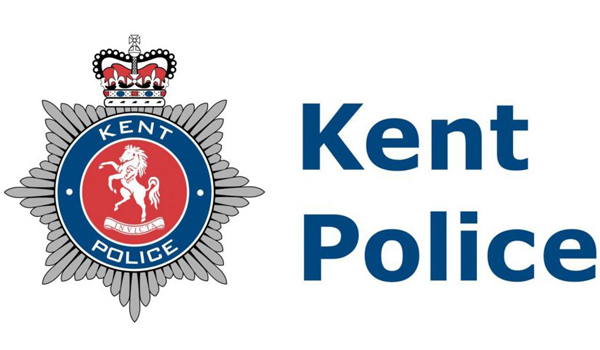HMICFRS identifies three areas where WMP 'requires improvement'
West Midlands Police (WMP) has been told to improve the way it manages sex offenders to control the risk to the public.
The latest police effectiveness, efficiency and legitimacy (PEEL) inspection by Her Majesty’s Inspectorate of Constabulary and Fire and Rescue Services (HMICFRS) found that the force was “good” in five areas, “adequate” in three areas and “requires improvement” in three areas.
The three classed as “requires improvement” were investigating crime, supporting victims and protecting vulnerable people.
Her Majesty’s Inspector of Constabulary Wendy Williams said: “I am satisfied with some aspects of the performance of West Midlands Police in keeping people safe and reducing crime, but there are areas where the force needs to improve.
“The force must improve how it carries out proportionate, thorough and prompt investigations into reported crimes. It lacks capacity in its investigation teams and investigations aren’t always overseen effectively, so it is less likely that there will be a satisfactory result for the victim.
“West Midlands Police also needs to improve its management of sex offenders. It should make sure it has the capacity and capability to mitigate the risk sex offenders pose to the public.
“I am pleased with some aspects of the way West Midlands Police protects vulnerable people. But it can’t meet the demand for its services in protecting vulnerable people with the resources it has.”
The force was praised for its use of problem solving and the way it works with other organisations to prevent crime, anti-social behaviour and vulnerability. The use of new systems and training to enable control room staff to identify risks more accurately when members of the public make contact were also praised.
Ms Williams added: “The force has also made progress against the national recommendations for monitoring and analysing stop and search data, which should result in a fairer service to the public. I am pleased by the force’s efforts to make sure its workforce reflects its diverse communities.
“The force hasn’t yet met the recommendation we made in 2019 that all police forces should comply immediately with national guidance on vetting. But it has made progress and it has an achievable plan to meet this recommendation.”
The force noted that the inspection took place during the height of the pandemic when there were extremely high levels of demand for its services and high numbers of staff were absent for Covid-related reasons.
Commenting on the report, Deputy Chief Constable Vanessa Jardine said: “This is a fair inspection that shows the strengths of the force and the areas identified for improvements are those that we identified to the inspectors at the start of this process. The inspection took place at a demanding time in the pandemic which accentuated some issues. It coincided with the introduction of new operational technology to the force which will offer long term improvements but has created short term disruption.
“We recognise we need to do more to improve how we investigate some crimes. We are working hard to achieve this with measures such as an end-to-end review of investigations and our Detective Academy. These are helping to improve our investigative capacity, capability and outcomes. We have already addressed most of the issues identified in the management of sex offenders.
“West Midlands Police serves a highly complex region with high deprivation. We note the observation that the force does not have the resources to meet the demand for services for vulnerable people that limits our ability to improve this grade. The high demand that West Midlands Police deals with is evident throughout the report. We will use the new officers recruited through the government’s uplift programme to strengthen our capacity but many of these areas need a partnership response.
“While we are pleased that inspectors recognised our crime recording as good we believe the current system is in need of urgent reform. Accurate crime recording is important but the current system is overly bureaucratic, creates a misleading picture of crime and does not act in the public interest in the way it operates. It is partly responsible for the pressures on investigators.
“We have highlighted our concerns to HMICFRS and we would welcome an opportunity to work alongside them and other partners to achieve a better position and outcomes for victims.”
West Midlands police and crime commissioner Simon Foster said: “I am pleased to see that inspectors have recognised West Midlands Police is good at preventing crime, treating the public well and tackling serious, organised criminals. I am pleased to see the improvement in how the force records crimes.
“The inspectors also found that West Midlands Police is efficient and well run. Taxpayers should therefore be assured that good use is being made of the resources that the force has.
“However, the assessment also shows the challenges that are faced. As the report states, West Midlands Police ‘can’t meet the demand for its services in protecting vulnerable people with the resources it has’. The assessment is the same in connection with investigation teams. It says West Midlands Police ‘lacks capacity’, meaning more resources are needed to cope with the demand that is faced.
“West Midlands Police faces high levels of high harm crimes, yet funding per head is lower than for many other areas, with far fewer threats. That is why I have called on MPs and leaders across our region to come together with a single, united voice to seek a fair funding deal for the West Midlands.
“West Midlands Police has endured a decade of cuts which forced it to reduce its police officer numbers by 2,221. That was 25 per cent of our police offices. Whilst we are due to receive a net increase of 1,200 police officers by 2023, that will still leave the Force with a shortfall of 1,000 police officers. This report, and the recommendations it makes, should be read in that context.”







